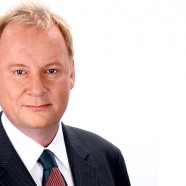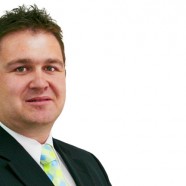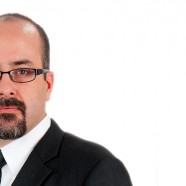Richard Wiliamson talks to Intergaming
Richard Wiliamson talks to Intergaming
“Regulations” – Please provide a brief overview of your company and its services. BMM is the longest established and most experienced private independent gaming certification lab in the world, providing professional technical and regulatory compliance services to the gaming industry since 1981. At its core, BMM is a systems-expert company that has provided consulting for and tested many of the largest gaming networks and systems over the last 30 years. In addition BMM has been successfully testing and certifying the full scope of Class III casino products for over two decades. BMM authored the first set of independent Australian gaming standards in 1992 and the first set of online gaming standards in 2001.BMM employs over 200 people in 12 countries and operates 11 gaming labs. BMM serves over 400 jurisdictions. BMM’s world headquarters are in Las Vegas (USA), with offices in Mexico City (Mexico), Lima (Peru), Melbourne and Sydney (Australia), Singapore, Macau (SAR, China), Busan (South Korea), Barcelona (Spain), Graz (Austria), Rome (Italy) and Midrand (South Africa). 1. Generally speaking, what are the key considerations when testing new gaming equipment? The key consideration for an Accredited Testing Facilitiy (ATF) when testing any gaming equipment is accuracy and reliability in the test results. ATFs are entrusted by regulators to verify that all tested gaming products adhere to the respective technical standards or regulations in the manner anticipated. Any and all deviations from the expected results are either corrected by the manufacturers prior to the final report or documented for the regulator to consider when rendering a final decision. Due to the nature of the relationship, the ATF is the liaison between the manufacturer and the regulator and as such provides interpretation and consultation with regard to a product’s adherence to the rules. It is not uncommon for an ATF to work with the regulator to propose a rule to accommodate a product that meets the spirit of the law but not the letter of the law. 2. How important is it to develop standards within new and emerging gaming markets? Jurisdictions cannot rely on manufacturers to guess what minimum standards are necessary or required. Technical standards and internal controls provide guidance to the game designers and the ATFs which in turn provides consistency in the operation of gaming products. These standards are needed to provide the necessary elements for gaming devices to be fair, reliable, and auditable. Sound technical standards benefit and protect both the operator and the player. Mature gaming markets need to maintain their rules as well to address emerging technologies. 3. How closely does your company work with regulators to develop these? BMM authored the first set of independent Australian gaming standards in 1992 and the first set of online gaming standards in 2001. For its entire 30 years of existence BMM has been involved in the development of regulations either directly or indirectly. Many jurisdictions have seen the logic in owning and controlling changes to their own gaming regulations which include technical standards. In a similar philosophy that jurisdictions do not rely on another jurisdiction to create and maintain its laws defining and governing criminal activities, the current trend is to choose a set of technical standards from another jurisdiction, adopt them and control all changes to them thereafter. BMM has been helping jurisdictions that have adopted this philosophical approach. 4. Do you believe there is a concerted effort to achieve greater harmonisation in standards across the industry? The effort to achieve harmonization in standards is driven by the manufacturers. It is in the manufacturer’s best interest to design innovations into their hardware and software to...
Read MoreGGB Magazine – Martin Storm interview
The important role of certifying slot machines and technology systems in the casino industry is undergoing a dramatic change. As gaming jurisdictions attempt to reduce regulatory costs while maintaining integrity, independent test labs (ITLs) have become a viable alternative to government-run labs. BMM has taken its experience in international jurisdictions and offered its services to government, operators and manufacturers in both the land-based and online industry. Entrepreneur Martin Storm saw the potential of the company when he bought it in 2005, and has built it into a significant presence in the market. He explains where BMM fits into the market and what he expects to happen over the next few years. He spoke with Global Gaming Business Publisher Roger Gros at the BMM offices in Las Vegas in May. https://ggbnews.com/issue/vol-10-no-20-may-21-2012/article/global-gaming-business-podcast-martin-storm-chief-executive-officer-bmm...
Read MoreBMM exhibiting at G2E Asia 2012
BMM is pleased to announce that it will once again be exhibiting at G2E Asia on May 22-24 in Macau. Kirk White, SVP Operations, Australia Asia-Pacific comments “G2E Asia has become a key event for BMM to grow its exposure to the dynamic Asian gaming markets, enabling us to promote BMM’s broad gaming technology services to our Asian and international customers. This is particularly true as G2E Asia continues to attract gaming technology manufacturers, operators and regulators from all around the world.” John Rochester, SVP Sales, Australia Asia-Pacific, sees significant growth in regulated gaming markets in Asia over the next few years, “Macau and Singapore are leading the way to show other Asian countries that regulated markets can deliver strong and healthy gaming revenues and profits.” Rochester adds “Countries will be taking control of their gaming technology standards. They will be evolving them to meet the ongoing requirements of their governments and gamblers in a way that delivers harm minimization programs, technical compliance and functional assurance based on the particular characteristics of their own gaming markets.” BMM is licensed by over 400 regulated gaming jurisdictions around the world including Macau, Singapore and other Asian regulators to conduct compliance evaluations of gaming technologies. BMM also provides installation, integration and operational gaming technology assessments for casino operators. Visit BMM at booth #737 at G2E...
Read MoreRichard Williamson interviewed by Intergame Magazine
“Testing Times” 1. Please give specific information on what services your company provides to the gaming industry? Since opening its doors in 1981, BMM has been helping regulators ensure the integrity of gaming operations. BMM also ensures manufacturers provide gaming equipment compliant with established rules and that operators configure and manage their equipment as required. These services for the technical sector of the gaming market have evolved with the advancement of innovative and technological developments. Conducting tests to confirm that a gaming device is compliant with rules is not sufficient to ensure that it will remain compliant with the rules once placed in operation. To assist in providing confidence of compliance and integrity for operational equipment, BMM assists in writing technical standards and internal controls in order to establish transparency in the regulatory process. Upon request, BMM also provides its own experts to conduct operational audits to verify that equipment is installed and operating as required and desired. 2. Which countries do you primarily deal with and do you have any plans to move into other countries? BMM is licensed or recognized in over 400 jurisdictions to provide its services as required. Generally these licenses and recognitions authorize manufacturers to engage BMM to provide testing services but these licenses and recognitions also place BMM as an available service provider to the governments in a consultation or advisory role. Since its inception BMM has expanded to meet the needs of its global clients and, as a result, BMM has become a local or regional service provider for many smaller companies. Currently, BMM has a global presence operating in ten countries with ten test labs. (map) BMM will continue to expand as required to meet the needs of its clients and the markets. As recently as 2010, BMM expanded its global footprint into Korea and Mexico. 3. As technology advances – meaning machines become more advanced – does this make your job harder or easier? Please explain your answer. The short answer is, not necessarily. Advances in technology do not always translate into being better for the gaming industry. Concerns with security and integrity have always been the challenge for regulators who author the rules that permit technological innovations. The testing lab works closely with the regulator to assist in analyzing new products or changes to existing products to see whether the changes fit within the framework of existing rules. The manufacturer looks to the testing lab to analyze the equipment and verify for the regulator that the new product or innovation is reliable, auditable and operates with integrity. Should use of a new product require a modification to existing rules, BMM also provides that service. 4. What new ‘issues’ do advances in machines bring with them with regard to testing processes? The newest issue, for bricks and mortar operations, will be the reliability on server based gaming where the servers are no longer in the same facility or perhaps in the same jurisdiction. While this concept is already successfully used for wide area progressives, a server based game using cloud computing will be the next hurdle for regulators. Typically, the non-gaming commercial world will continue to innovate with this new technology and that development and exposure helps pave the path for providing the necessary assurances that regulators will need for adapting and approving. Similarly and particularly in the USA, land based regulators are anticipating legal changes and are already looking to the testing labs to provide guidance for regulating internet gaming. 5. Which countries demand the most/are the strictest when it comes to machines? Jurisdictions that take an active part...
Read MoreiGaming North America – comment on Geo-Location by Travis Foley
“Geo-Location” There is a risk that operators going online in Nevada will be held back unless they arrange their solution quickly. Although the online poker platform will always be the main priority, location technology cannot be a last-minute consideration. Travis Foley, vice-president of operations at one of these labs, BMM Americas, says: “It is critical that a geolocation solution be fully integrated and operational as part of an overall interactive system when it is submitted to a lab for certification testing. An independent lab would be unable to certify that the overall system complies with the minimum jurisdictional requirements without all of the necessary components.” And if a gaming system’s methods for detecting a player’s location were proven to be seriously inadequate, the consequences would be highly frustrating for operators. “If the deficiencies were insurmountable and required a gaming company to select a different method or provider for geolocation, there could be significant delays due to the work necessary to integrate and test a new solution,” Foley adds. While geolocation will be essential as the US regulates on a state-by-state basis this year, this in no way means that it would become less important should a federal solution be agreed in the future. A key political reason for regulating egaming is the tax revenues it would generate, and without a geolocation solution, there would be no accurate way of determining which state should receive them, as Matthew Katz, CEO at CAMS, explains: “Let’s say Nevada and Delaware were to do a multi-state compact, where Delaware residents could wager or play poker at a Nevada operator’s site. The question ultimately that’s going to have to be determined in federal legislation is if the player is in Delaware but the operator is in Nevada, who gets the tax revenue? So from that perspective, the concept of internet and mobile geolocation are equally critical to both a federal and state-by-state scenario.” Whichever way regulation progresses in the US, geolocation will always be an essential part of casinos’ online offerings. With the software needing to be integrated before submitting the gaming system to a testing lab, there should be no delay for operators recently or soon-to-be licensed in Nevada and beyond and with an eye on any regulatory developments in other states....
Read More











